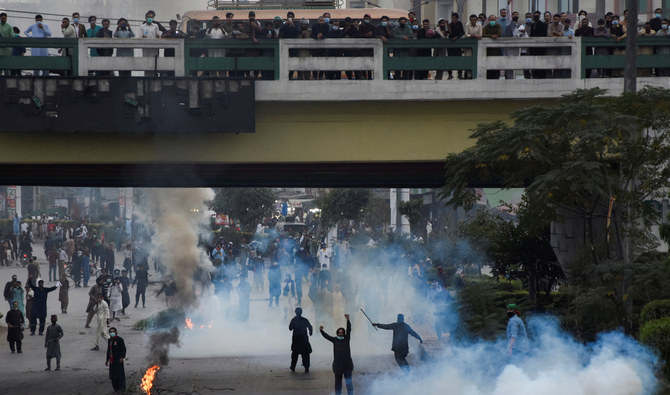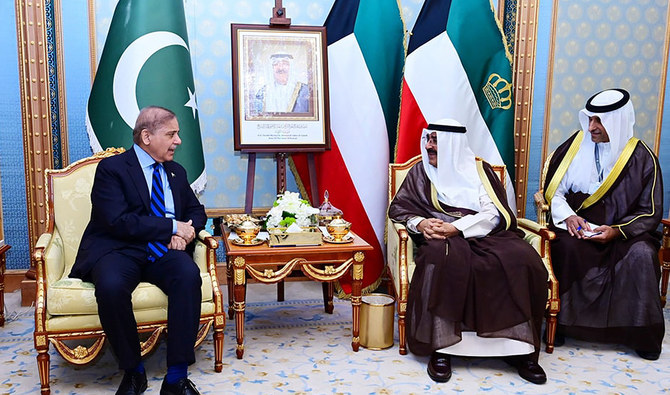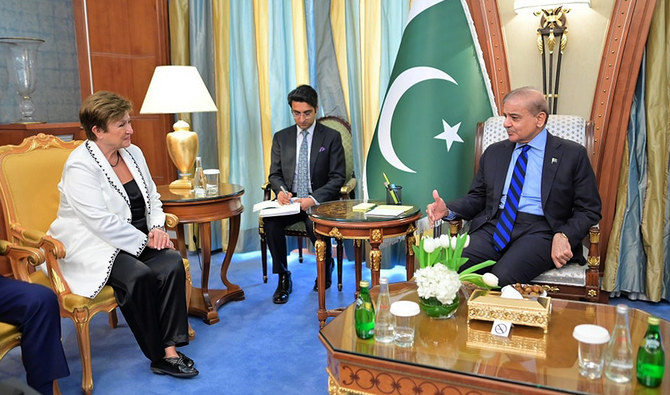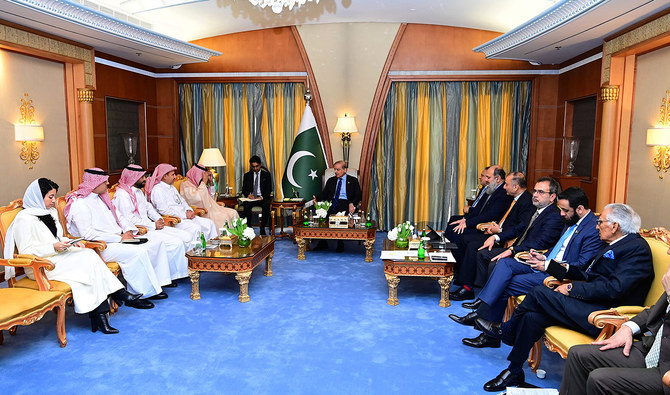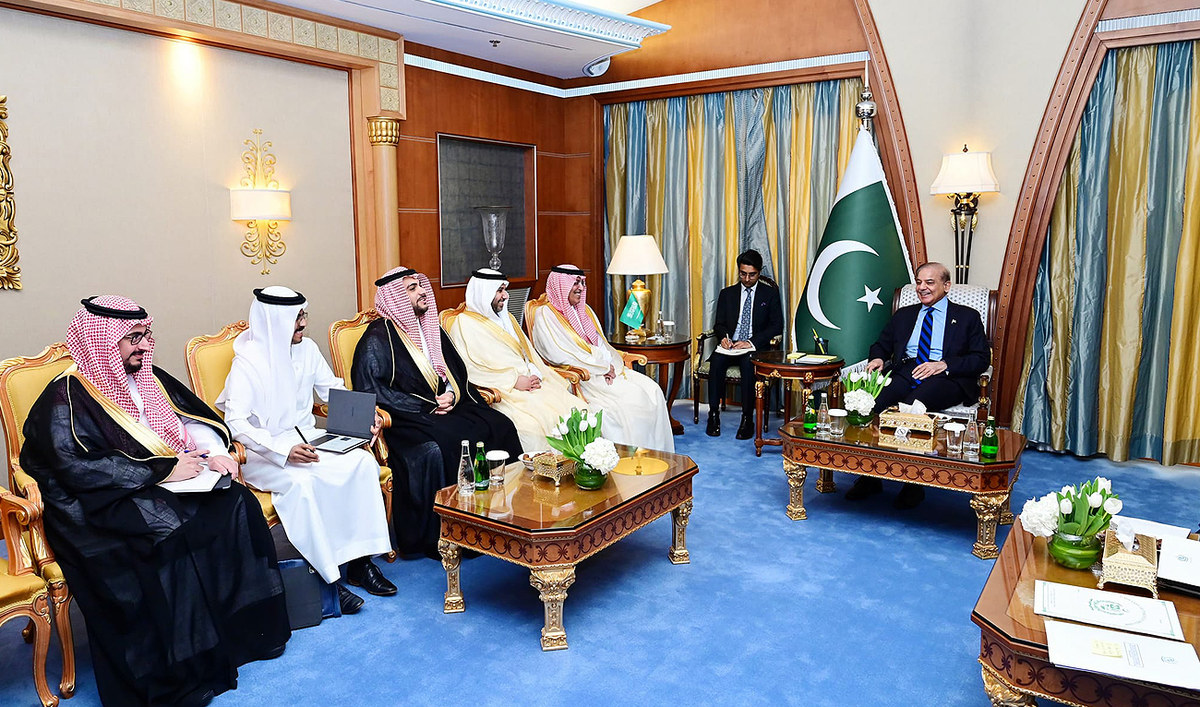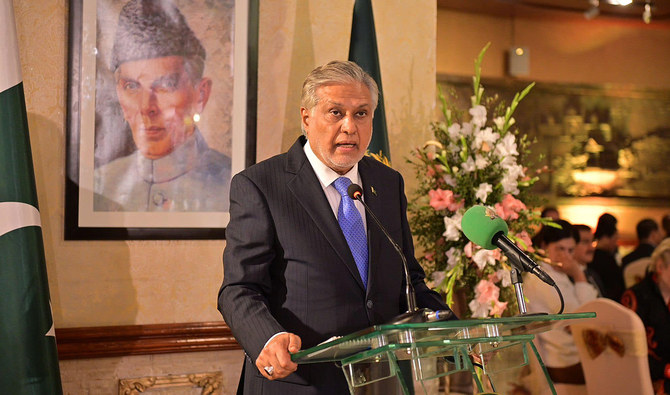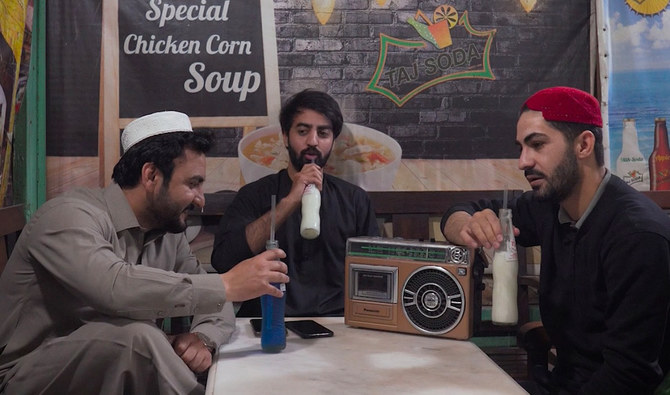ISLAMABAD: Pakistan’s interior ministry on Tuesday asked the provincial governments of Khyber Pakhtunkhwa and Punjab to “remove protesters” and restore movement on major highways, motorways and arteries in the provinces, as scores of supporters of former prime minister Imran Khan blocked roads to protest against an attempt on his life.
Demonstrators are protesting against a bid to assassinate Khan at a recent anti-government rally last week where one person side and 13 others, including the former prime minister, were injured.
Fresh protests began on Tuesday after Khan’s party rejected a police complaint lodged over the gun attack because it did not include the names of officials that Khan has accused of the plot to kill him, namely Prime Minister Shehbaz Sharif, Interior Minister Rana Sanaullah and ISI director-general for counter intelligence Major General Faisal Naseer.
Khan’s supporters began their protests on major roads around Islamabad late on Monday. By Tuesday they had blocked the highway to Islamabad’s international airport and the ones linking the capital to the cities of Lahore and Peshawar.
Television footage showed Khan’s supporters burning tires as they set up protest camps across roads.
The government ordered all state and private schools to shut for the day.
In its letter to the provincial governments, the interior ministry said that instead of undertaking efforts to control the situation, police have assumed the role of “silent spectators.”
“It appears that the provincial government is failing in its constitutional/legal obligation to maintain law and order which can have serious consequences,” the interior ministry said.
“Hence, it is requested to immediately remove the protesters to restore smooth movement on motorways, highways and link roads,” it added.
In a letter widely reported by local media, Islamabad Police earlier today, Tuesday, sought permission from the federal administration to clear the Lahore-Peshawar Motorway as Khan supporters blocked roads near the capital, disrupting traffic and forcing schools to close.
In its letter to the interior secretary and chief commissioner, Islamabad Police had sought permission “for the clearance of Lahore-Peshawar Motorway blocked by PTI supporters, which is also the road leading to Islamabad airport,” Geo News reported.
“The police stated in the letter that the airport comes under the banner of vital installations and the ways leading to it hold immense importance.”
“All the VVIP movements are made through the same route. The ambassadors and foreigners take the same road to access the federal capital,” Geo said, quoting the letter. “Any untoward incident may bring bad name to the country.”
Khan, 70, launched his “long-march” protest rally from Lahore to the capital on Oct. 28.
He was waving to the crowd from a container mounted on a truck in Wazirabad city in Punjab province last Thursday when a man fired several shots at him.
Khan was among at least 10 wounded people. One party worker was killed.
Police have arrested the suspected shooter.
Khan’s party announced late on Monday that the march would resume on Thursday at the place where Khan was attacked, and he would lead it virtually and join in person when it reached Rawalpindi, a city neighboring Islamabad.
The rising political tension come as Pakistan is grappling with economic turmoil exacerbated by recent flooding that the government estimates caused economic losses worth $30 billion.
On Monday, political turbulence rose as Khan’s party rejected the FIR lodged by police in the gun attack.
“We are not going to take this blatant injustice,” Khan’s Pakistan Tehreek-e-Insaf (PTI) party said on Twitter.
“The person who suffered the assassination attempt has given three names, all must be on the FIR, and until then, it is JUNK!“



